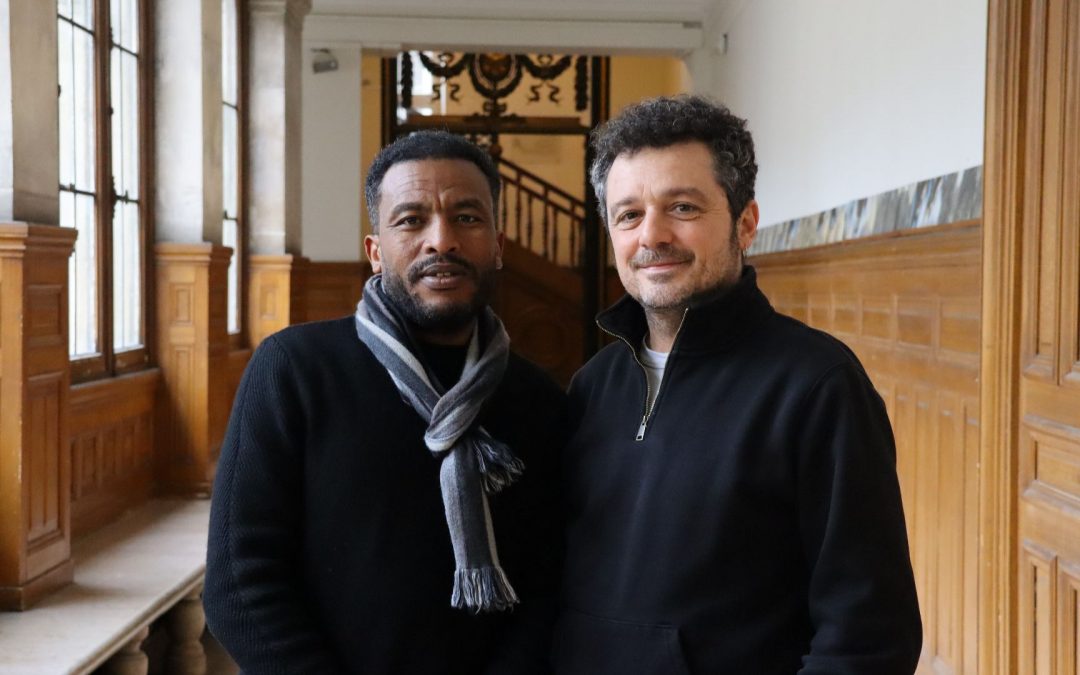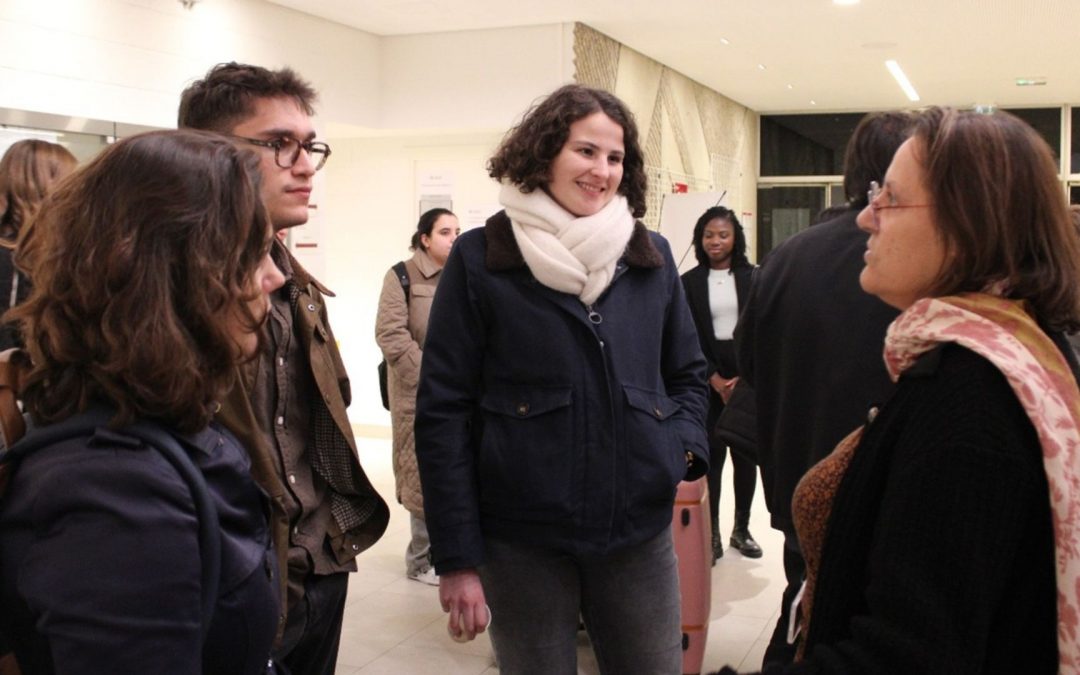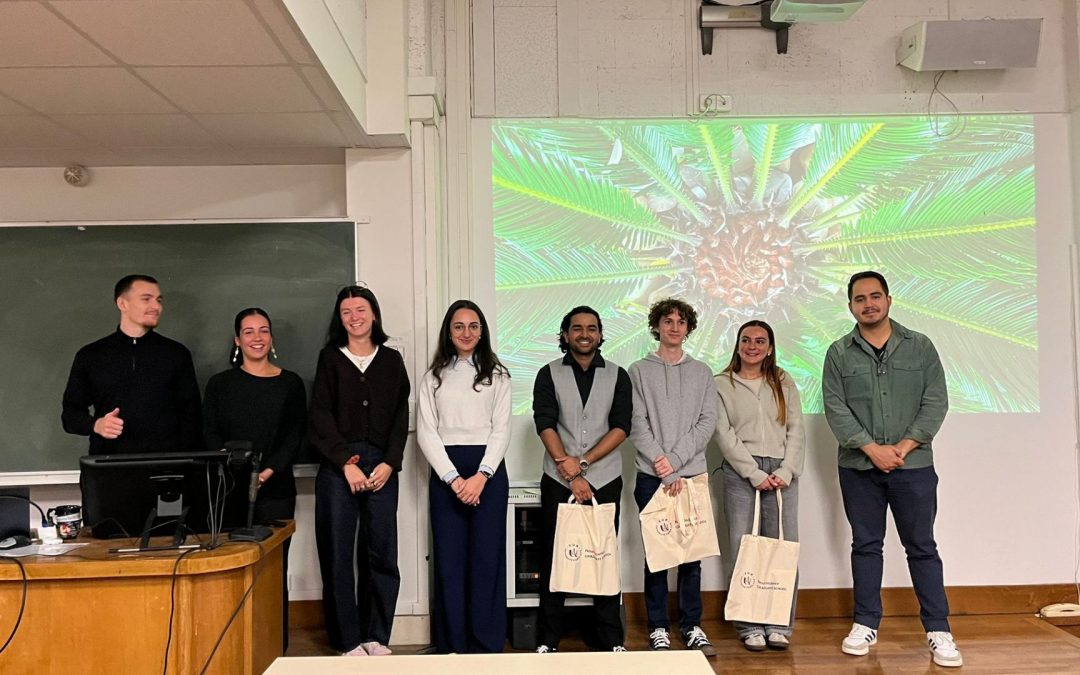Single signature of publications
Scientific publications contribute to the dissemination of research and therefore to the institution’s standing. This is a central and crucial issue for Université Paris Cité, which aims to position itself as a world-class research-intensive university. In order to ensure optimal visibility of the activities of Université Paris Cité units and IdEX Université Paris Cité, it is essential to respect clear rules in terms of signature.

The signature recommendations for each laboratory and unit will soon be available.
Adherence to signature rules is important in the perception that an external observer (researcher, institution or ranking provider of universities, general public, trusteeships, government) may have of the university and its scientific results. A standardised signature will enable more effective use to be made of the large databases such as Web of Science (Clarivate Analytics) and Scopus (Elsevier) in order to consolidate our indicators, particularly in the context of international rankings.
It should be noted that the editors of journals and bibliographic databases each carry out a handling of the affiliations provided by the authors: abbreviation, translation, modification of the position of the institution identified as “main”.
All personnel paid by or assigned to the university for their research are required to adopt a standard signature: teacher-researchers, researchers, doctoral students, postdoctoral students, etc.
Recommendations
After the name(s) of the author(s) appear :
– The mention of “Université Paris Cité” which should neither be abbreviated to “Univ. Paris” nor translated as “Paris University”. Attention, the word “Université” is written with a capital letter);
– The mandatory mention of the research unit in a short defined format;
– The mention of the research organisations (EPST) co-supervising the unit (CNRS, INSERM, IRD, etc.); none of the names of the co-supervising organisations are translated into English;
– The mention of a simple postal address in its internationally standardized form (without the cedex and with an F-), the city and the country;
– These different elements appear on a single line, separated by a comma;
– Any university co-supervision must appear on another line (see example below);
– A non-co-supervisory employer, such as the AP-HP, must be present in the signature, but on a separate line (see example below);
– Acknowledgements (and not in the signature) should include the mention of the Idex Université Paris Cité, the funding and the platforms used.
Construction of the signature
Mention of university affiliation
Scientific publications must include a mention of affiliation with the University of Paris, written in the form “Université Paris Cité”.
IMPORTANT: The signature logic is that of the research unit and does not correspond to the author’s sole “employer”.
Membership in a research unit
The segment of the signature dedicated to the research unit membership should also be standardized to ensure better visibility.
The signature of a publication produced within a research unit should be constructed as follows:
› Auteur·e 1
1 Université Paris Cité, unit name/acronym/abbreviation, F-Code postal city, France
Mention of EPST co-tutors
Single line structuring is the standard to be used. A single-line signature shows on the same line the university and the EPST(s) co-supervising the joint research unit.
The signature of a publication produced within a joint research unit must therefore be constructed as follows:
› Auteur.e 1
1 Université Paris Cité, unit name/acronym/abbreviation, EPST co-tutelle1, EPST co-tutelle2, F-Code postal Ville, France
Mention of co-tutoring universities
In the case where other universities are co-supervisors of the research unit to which the author belongs, these universities must appear in a second signature line.
The signature of a publication produced within a joint research unit with several co-supervisory universities must be written as follows:
› Auteur.e 1,2
1 Université Paris Cité, nom de l’unité/acronyme/abréviation, EPST co-tutelle1, EPST co-tutelle2, F-Code postal Ville, France
2 Autre université co-tutelle de l’unité, nom de l’unité/acronyme/abréviation, F-Code postal Paris, France.
Partnership with AP-HP or a Hospital
In the case where the author of the publication is a university hospital or hospital staff hosted in a research unit under the supervision of Université Paris Cité, this membership should be mentioned in a second signature line in accordance with the standard published by the AP-HP.
The signature of a publication of a university or hospital staff must be constructed in the following manner:
› Auteur.e 1,2
1 Université Paris Cité, unit name/acronym/abbreviation, EPST co-tutelle1, EPST co-tutelle2, F-Code postal Ville, France
2 Service, AP-HP, Hôpital, F-Code postal Paris, France
Case of a location outside Université Paris Cité
If the author of the publication is a teacher-researcher, doctoral student, post-doctoral student employed by Université Paris Cité but located in another institution, the affiliation to Université Paris Cité should be mentioned in a second signature line in accordance with the recommendations of the institution where the publication is located.
The signature of a publication must therefore be constructed as follows:
› Auteur.e 1,2
1 Signature recommandée de l’établissement tutelle de l’unité
2 Université Paris Cité, name of unit/acronym/abbreviation, F-Code postal Ville, France
Glossary
Co-tutoring” or “participating” institutions:
– co-supervision“: operators who are signatories to the agreement for the creation of the research unit and who allocate human and/or financial resources to the entire scope of the unit’s research activities.
– participants“: operators who are not signatories to the agreement for the creation of the research unit and who, by means of a separate agreement, allocate human and/or financial resources to part of the unit’s research activities.
Host: establishment which participates in the scientific life of the research structure by providing it with permanent premises: AP-HP, CEA, ENS, Observatory, Pasteur, INTS, …
EPST: Public Establishment of a Scientific and Technological Nature (e.g. CNRS, Inserm, IRD, INRA etc.)
Scientific and technological platform: equipment or sets of equipment and expertise that are used by the teams for their research and that are able to reach out to the outside world whether for academic partnerships or with the industrial world.
Scopus: Interdisciplinary bibliographic database produced by Elsevier. Used as a database for some international rankings.
Web of science: International bibliographic database in Sciences, Social Sciences and Humanities produced by ISI – Institute for Scientific Information. Used as a database for some international rankings. Property of Clarivate Analytics.
To contact the DRIVE
direction.drive@u-paris.fr
Read more

International Day of Women and Girls in Science: celebrating the women who push research forward
February 11 was the International Day of Women and Girls in Science. On this day, Université Paris Cité reaffirms its commitment to the equality between men and women and celebrates the journey of the women who advance research. Between celebrating our heritage and...

Abraha and Pierre: A Friendship to Preserve the People’s Memory of War
In Paris, two historians’ paths crossed. One had just arrived from Ethiopia, carrying notebooks filled with daily observations written during the war in Tigray. The other, based in France, is a specialist of Ethiopian modern history. From this encounter, a partnership...

“Open UE”: looking back on an interdisciplinary adventure organised by the Cardiovascular Sciences Graduate School
The “open UE”, launched by the Graduate School Cardiovascular Sciences, brought together researchers, clinicians, and experts from diverse fields for a week to explore major issues in biomedical and translational research. Open to all students across the 29 Graduate Schools of Université Paris Cité, it offered a unique space for learning and interdisciplinary exchange.

Scientific event: the Neuroscience Graduate School highlights its young researchers
The Neuroscience Graduate School held the third edition of its scientific event, giving students from across the Graduate School the opportunity to present their research work. This now-established meeting has become a key moment for bringing together Master’s...
